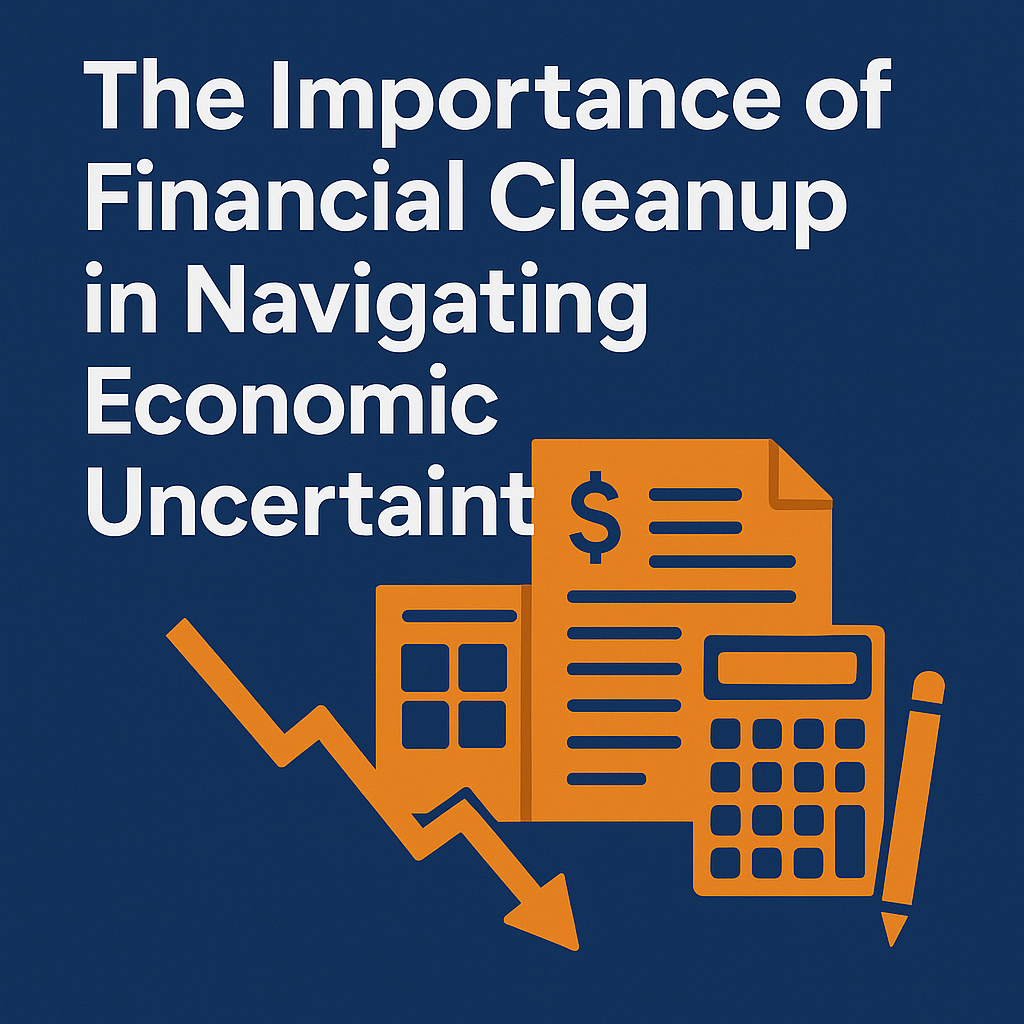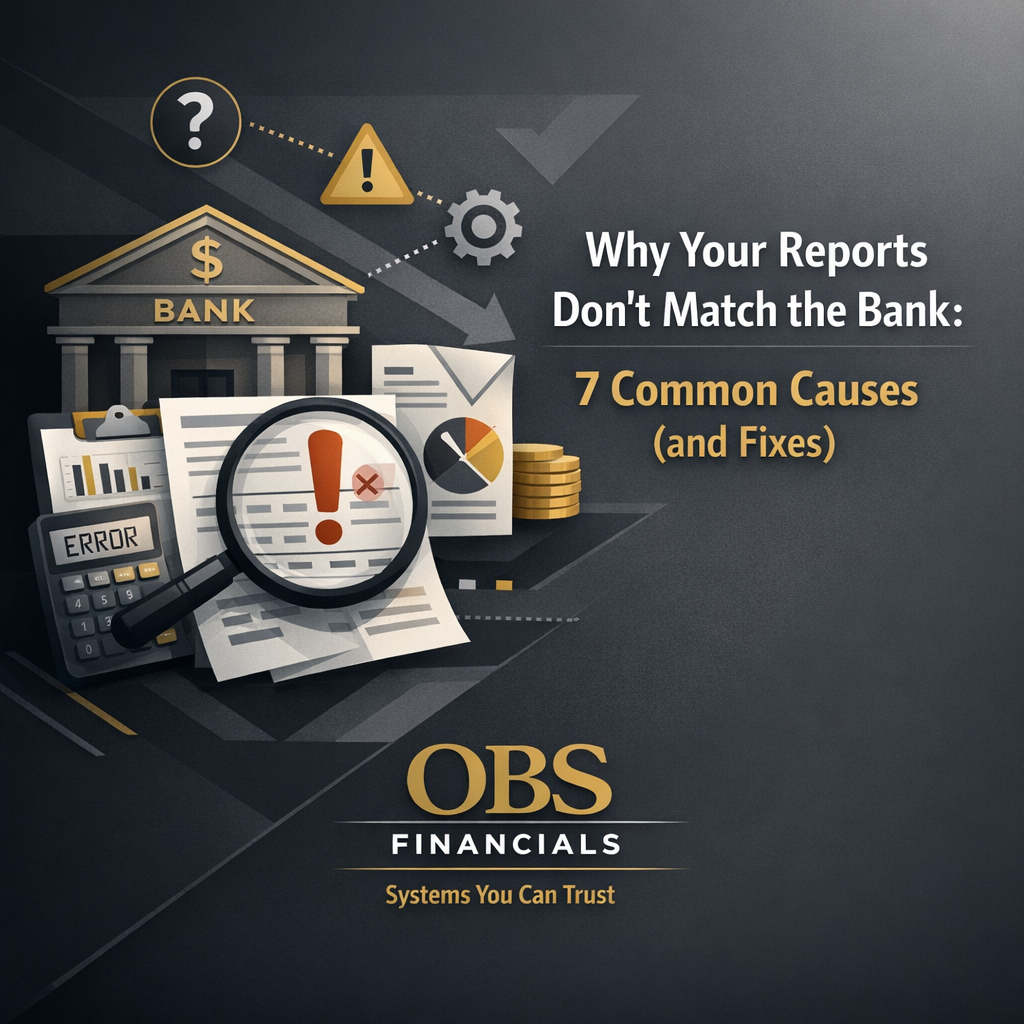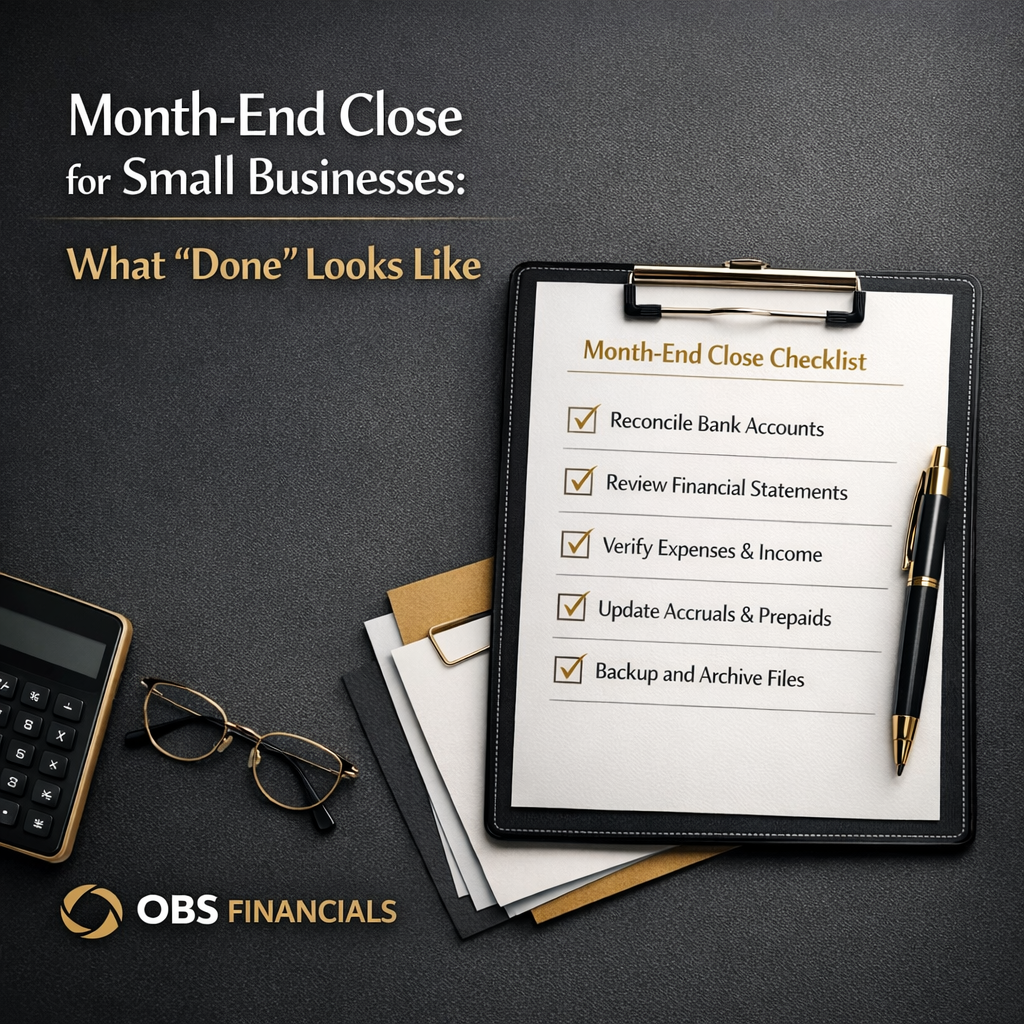Navigating economic uncertainty is a formidable challenge for any business, and it has become increasingly essential in today’s fast-paced and interconnected financial landscape. Economic instability, driven by factors such as fluctuating interest rates, labor market volatility, and the impact of emerging markets, can pose significant risks to the stability and growth of small businesses, startups, nonprofits, and mid-sized companies. One key strategy that can help businesses build resilience and make better financial decisions during such times is the practice of financial cleanup.
Financial cleanup involves a thorough review and optimization of a company’s financial health, including the management of debt, assessment of credit risks, and implementation of robust internal controls. By engaging in regular financial cleanups, businesses can enhance their financial stability, improve their risk management frameworks, and ensure they are well-prepared to handle the challenges that economic uncertainty may bring.
The Role of Financial Cleanup in Enhancing Financial Stability
Assessing Current Financial Health
Assessing the current financial health of your business is the foundational step in the financial cleanup process. This involves a comprehensive review of your financial statements, including balance sheets, income statements, and cash flow statements.
By analyzing these documents, you can identify areas of strength and weakness, such as high levels of debt, inefficient asset allocation, and unnecessary expenses. This assessment also helps in evaluating your compliance with regulatory requirements, which are necessary for maintaining financial stability.
Identifying and Eliminating Unnecessary Expenses
Identifying and eliminating unnecessary expenses is a critical component of financial cleanup. Over time, businesses often accumulate redundant or inefficient operations, which can drain resources and hinder financial performance. By streamlining processes and cutting unnecessary costs, you can improve operational efficiency and allocate resources more effectively.
For instance, businesses are increasingly adopting credit risk transfers (CRTs) and forward-flow arrangements to reduce risk-weighted assets and recycle capital more quickly, thereby enhancing financial stability.
Restructuring Debts
Restructuring debts is another vital aspect of financial cleanup that directly impacts your financial stability. High levels of debt, especially if not managed properly, can exacerbate financial risks during times of economic uncertainty.
You can restructure your debts by negotiating better terms with creditors, consolidating loans, or even recapitalizing through measures similar to those seen during financial crises. However, it is important to manage such recapitalization efforts carefully to avoid regulatory pitfalls that can hinder long-term productivity growth.
Improving Risk Management through Financial Cleanup
Creating an Emergency Fund
Creating an emergency fund is a pivotal aspect of improving risk management through financial cleanup. This fund serves as a financial cushion during times of economic uncertainty or unexpected financial shocks. By setting aside a portion of your assets in a readily accessible and low-risk account, you can ensure necessary liquidity to navigate adverse economic conditions without compromising long-term financial stability.
This approach aligns with best practices in risk management, maintaining confidence among investors and customers, and avoiding disruptions to operations.
Reviewing Investment Portfolios
Reviewing your investment portfolios is another key step in enhancing risk management through financial cleanup. Regular assessment of your investment portfolios helps identify and mitigate potential risks. This involves evaluating the performance of various assets, reassessing risk appetites, and adjusting portfolio composition to align with your overall risk management strategy.
Using advanced analytics and real-time data integration can help identify emerging risk trends and make proactive decisions to rebalance portfolios, thereby minimizing exposure to high-risk assets and optimizing returns. This proactive approach is essential for maintaining financial stability and ensuring compliance with regulatory standards.
Long-term Benefits of Regular Financial Cleanups
Enhanced Financial Awareness and Discipline
Regular financial cleanups foster a culture of enhanced financial awareness and discipline within your organization. Periodically reviewing and optimizing financial health allows for a clearer understanding of your financial position and more informed decision-making.
This process encourages reliance less on debt and more on cash from operations, demonstrating that your business operations are robust and not solely dependent on credit lines. Such discipline is essential for maintaining a healthy financial profile and reducing default risks, ensuring you are better equipped to manage finances prudently.
Preparedness for Future Economic Fluctuations
A significant long-term benefit of regular financial cleanups is the preparedness they provide for future economic fluctuations. A robust financial cleanup process helps build resilience against economic uncertainty by ensuring strong capital and liquidity buffers. This lowers the probability of financial crises and reduces the impact of economic downturns.
By maintaining a clean and optimized financial structure, you can better navigate economic downturns, support growth, and maintain public confidence in your financial management.
Conclusion
Whether you’re launching your first venture or managing a fast-growing company, maintaining a clean and optimized financial structure is essential for navigating economic uncertainty. Regular financial cleanups enhance financial stability, improve risk management, and prepare your business for future economic fluctuations.
With over a decade of experience, certified expertise, and a genuine passion for helping business owners succeed, OBS Financials is here to bring clarity, confidence, and calm to your finances. From financial cleanup to payroll, monthly bookkeeping, and CFO-level insights, our flat-rate, insured services are built to grow with your business. Book a free consultation today and discover how OBS Financials can help you reclaim your time, reduce stress, and make smarter financial decisions — all with a partner who treats your business like their own.
FAQ
What are the key steps to take in order to plan for financial uncertainty, especially in the face of rising consumer debt and economic turmoil?
To plan for financial uncertainty, key steps include:
- Collecting and reviewing all financial information, including accounts, debts, and insurance.
- Creating an emergency monthly budget plan and building an emergency or rainy-day fund.
- Reviewing and managing debt, and exploring available options.
- Tightening expense management to protect future savings.
- Reviewing insurance coverage and investment status.
- Adopting a flexible, rolling budget approach and engaging in scenario planning for different potential outcomes.
- Focusing on cash flow management to ensure stability.
How can creating adaptable and resilient financial models help individuals and organizations navigate economic uncertainty?
Creating adaptable and resilient financial models helps individuals and organizations navigate economic uncertainty by allowing for quick adjustments to assumptions, inputs, and scenarios. This involves using techniques like scenario planning, Monte Carlo simulations, and regular updates to reflect changing market conditions, enabling flexible responses to various economic outcomes and ensuring the model scales with the business’s needs.
What strategies can be employed to protect finances during economic uncertainty, such as managing emergency savings and debt?
To protect finances during economic uncertainty, consider the following strategies:
- Build and maintain an emergency fund to cover 3-6 months of expenses.
- Pay down debts, especially variable-rate debts, and consider debt consolidation through fixed-rate loans.
- Diversify your investments across different asset classes, such as stocks, bonds, and real estate, and geographically across various markets.
- Hedge risks using financial instruments like options, futures contracts, or currency swaps.
- Review and adjust fixed income investments to manage duration risk and other associated risks.
How important is cash management and maintaining a rainy day fund for both individuals and nonprofits in times of economic uncertainty?
Cash management and maintaining a rainy day fund are important in times of economic uncertainty for both individuals and nonprofits. They ensure liquidity to meet immediate obligations, such as payroll, rent, and supplier payments, and provide a financial cushion to sustain operations and maintain business continuity.




